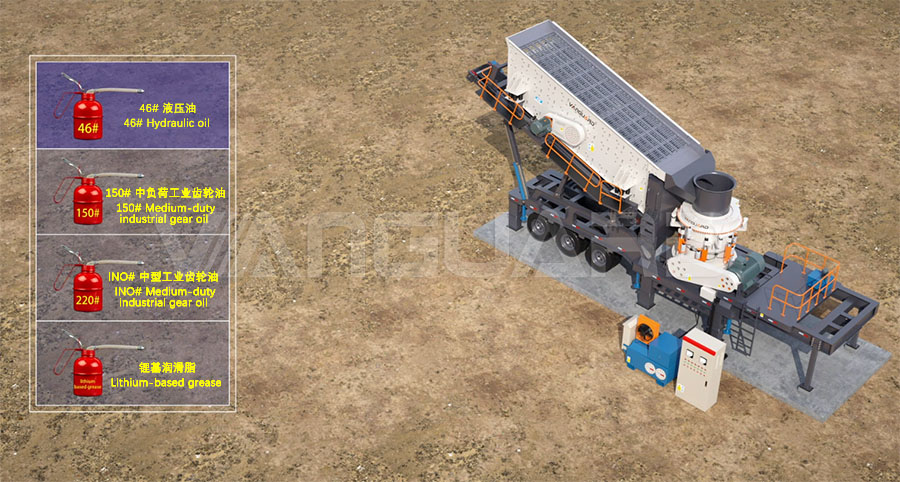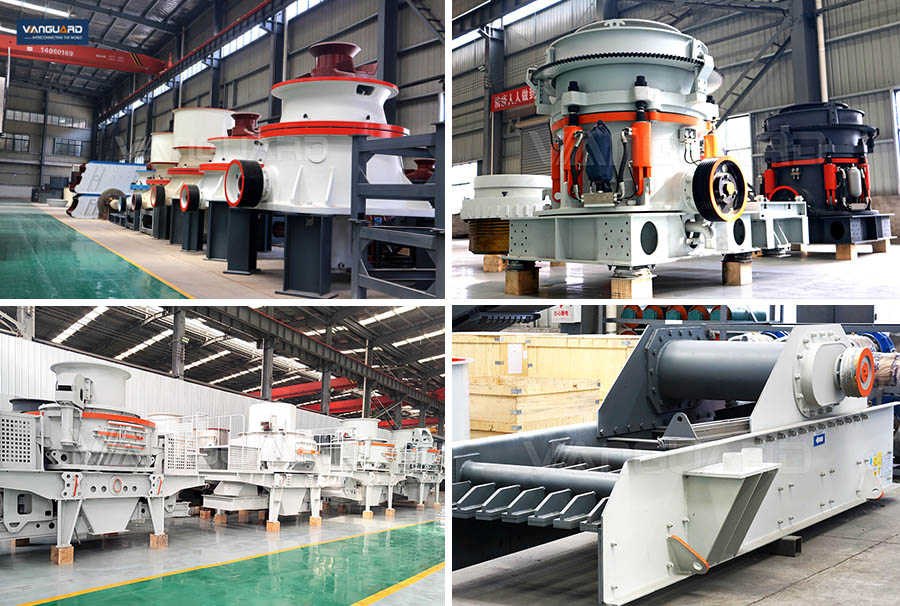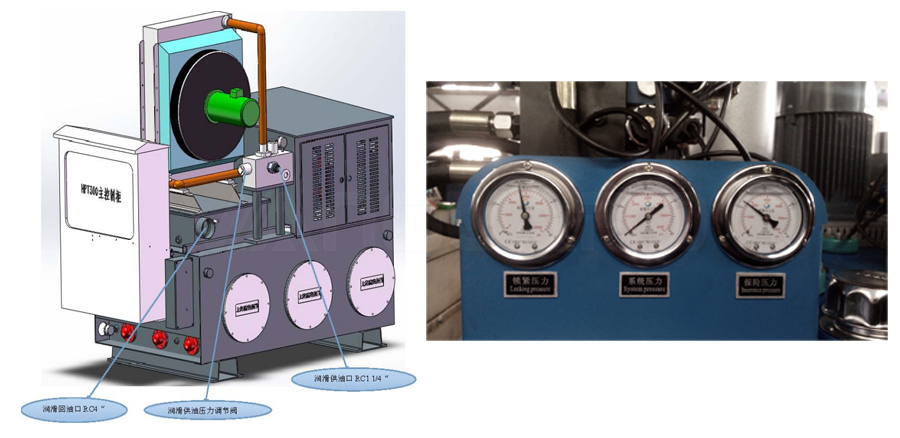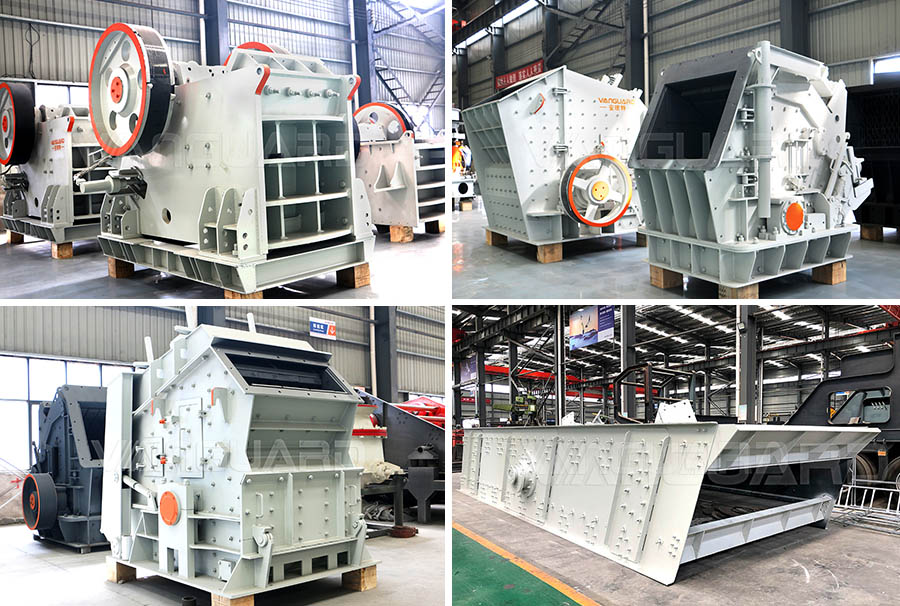In-depth Analysis of the Lubrication Methods, Applicable Equipment and Common Misunderstandings of Mining Crushers
Date:2024-01-10As an important piece of equipment in mining production, the normal operation of the mining crusher directly affects production efficiency and operating costs. Lubrication is one of the key factors to maintain the good operation of the crusher. It is crucial for mining engineers and maintenance personnel to understand and master the correct lubrication methods and applicable equipment, and to identify common misunderstandings. This article will comprehensively analyze the lubrication methods of mining crushers, applicable equipment, and common misunderstandings in equipment lubrication.
1. Lubrication method
(1). Thin oil lubrication:
Thin oil is a kind of mineral oil with low viscosity and good fluidity. It can quickly penetrate into the fine parts of the equipment and form an oil film, which can reduce friction and protect the equipment. After thin oil forms an oil film on the friction surface, it can effectively reduce the operating temperature of the equipment, prevent the equipment from overheating, and extend the service life of the equipment. It can effectively prevent external impurities and moisture from entering the friction surface, and protect the equipment from corrosion and wear. Thin oil has good antioxidant properties, which can effectively prevent the equipment's lubricating oil from deteriorating and contaminating, ensuring the lubrication effect and service life. Thin oil has good process performance, is easy to prepare and blend, and can meet various lubrication needs. In the mining crusher, lubricating oil is delivered to the friction surface of the crusher through a thin oil pump. The use of thin oil lubrication can improve the reliability of the equipment, extend its service life and reduce maintenance costs.
(2). Grease lubrication:
Grease has high adhesion and solidification properties and can fill the tiny clearance and pores in the equipment to form an effective sealing layer to prevent external impurities from entering and reduce leakage and pollution. Grease can buffer, absorb shock, prevent friction and wear caused by vibration and impact during operation of the equipment, and improve the smoothness of equipment operation. Grease can form a protective film on the friction surface of the equipment to prevent parts from being worn due to friction. At the same time, it can lubricate and reduce equipment operating resistance and energy loss. Grease usually has good high-temperature stability and anti-oxidation properties, and can maintain a stable lubrication effect in high-temperature environments and prevent the volatilization and decomposition of the lubricant. Grease has wide applicability and can be adapted to different types and working conditions of mining crushers to meet various lubrication needs.
2. Applicable equipment
When choosing to use thin oil lubrication or grease lubrication, it is necessary to comprehensively consider factors such as the specific working conditions of the equipment, the characteristics of the friction parts, and maintenance requirements.
Thin oil lubrication is suitable for friction parts with high speed, high temperature and large load, such as cone crushers (single-cylinder, multi-cylinder, compound cone crusher), sand making machines, vibrating feeders, etc. These equipment is required to withstand large loads and friction, and thin oil lubrication is required to provide adequate lubrication and cooling.
Grease lubrication is suitable for low-speed operation and medium-low load friction parts, such as jaw crushers, impact crushers, vibrating screens, etc. These equipment have small loads during operation and do not require continuous lubrication and cooling, so the use of grease lubrication can better adapt to the operating needs of the equipment.
When using thin oil lubrication, you need to pay attention to selecting the appropriate thin oil variety and viscosity grade to ensure the stability of the oil supply volume and oil supply pressure, and regularly check the cleanliness and quality of the thin oil to ensure the lubrication effect and the stability of equipment operation. When using grease lubrication, you need to pay attention to factors such as the grease grade, operating temperature, and equipment operating environment, and correctly select and use grease to achieve good lubrication and protection.
3. Misunderstandings in equipment lubrication
(1). Not paying attention to the quality of lubricating oi
Use low-quality lubricating oil, as long as it can achieve the lubrication effect. However, low-quality lubricating oil often contains impurities and additives that can cause damage to equipment. Therefore, when choosing lubricating oil, you need to choose brands and models with reliable quality to ensure the lubrication effect while also protecting the equipment.
(2). Add lubricating oil when there is a lack of oil.
When equipment is short of oil, liquid friction often cannot form, which will cause accelerated wear of machine parts, rapid loss of equipment accuracy, and even serious accidents such as wear, strain, and seizure. Therefore, the lubrication system of the equipment must be checked regularly, including the quantity and quality of lubricating oil. When a lack of oil is found, lubricating oil should be added in time.
(3). The more oil, the better
Adding too much lubricating oil may cause problems such as increased resistance and leakage. Therefore, the appropriate amount of lubricating oil should be added according to the specific needs and usage of the equipment.
(4). Lubricants of different brands can be mixed
Due to different ingredients and additives of different brands of lubricating oil, mixing may cause chemical reactions and affect the lubrication effect. Therefore, the same brand of lubricating oil should be used and replaced according to the instructions for use.
(5). Do not change lubricating oil for a long time
Some people do not change lubricating oil for a long time in order to save costs. Doing so may cause impurities and contaminants to accumulate in the lubricating oil, affecting the lubrication effect. Therefore, the frequency of lubricating oil replacement needs to be determined based on the maintenance requirements and usage of the equipment to ensure timely replacement of lubricating oil.
(6). Ignore the operating environment of the device
The operating environment of the equipment may affect the lubrication effect. For example, environmental factors such as high temperature, high humidity, and dust may affect the lubrication effect of the equipment. Therefore, when selecting lubricating oil and maintaining equipment, you need to consider the operating environment of the equipment and choose a suitable lubrication method.
To sum up, equipment lubrication is an important equipment maintenance task. Correct lubrication can effectively reduce equipment wear and increase equipment service life. When using equipment, we need to avoid the above common equipment lubrication misunderstandings and pay attention to various aspects such as viscosity, quality, operating environment, etc. At the same time, we need to choose appropriate lubrication methods and maintenance strategies based on the specific needs and usage of the equipment. In addition, regular inspections and routine maintenance are required to ensure the normal operation of the equipment.




